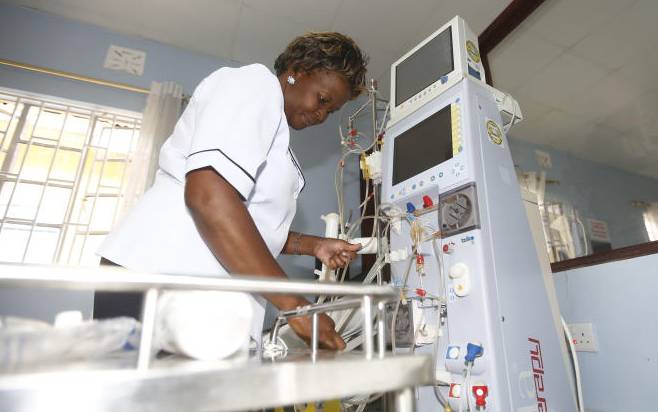×
The Standard e-Paper
Smart Minds Choose Us

Mary Munisi Nursing officer in charge of dialysis at one of the dialysis wards at Rift Valley Provincial General Hospital (PGH) ON March 9, 2020.[Kipsang Joseph, Standard]
A team of advisers in the Ministry of Health could soon be tasked with the management of staff in the public health sector if a new Bill is passed into law.